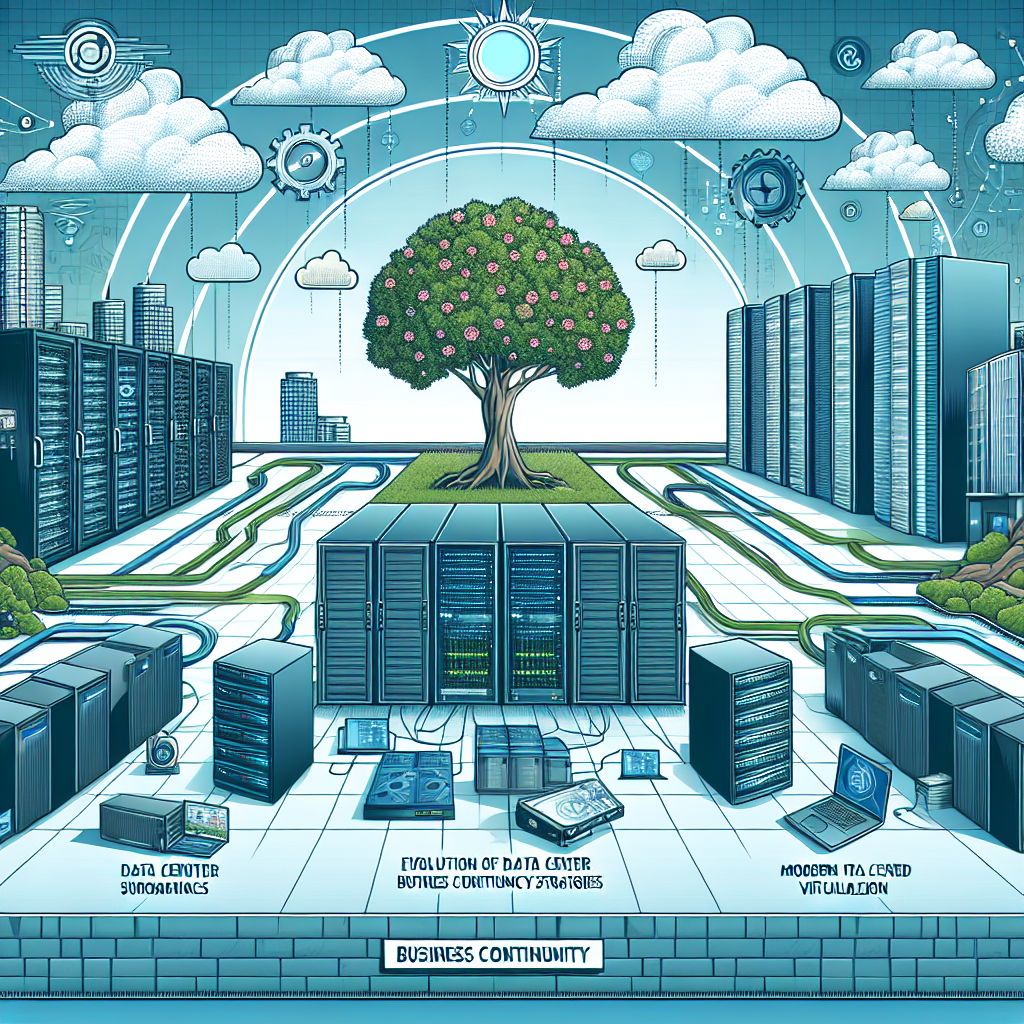Your cart is currently empty!
The Evolution of Data Center Business Continuity Strategies

In today’s digital age, data centers play a crucial role in storing and processing vast amounts of information for businesses of all sizes. With the increasing reliance on technology, the need for robust business continuity strategies within data centers has never been more important.
Data center business continuity strategies have evolved significantly over the years to ensure that critical data and applications remain accessible in the event of a disaster or disruption. In the past, many companies relied solely on backup tapes and offsite storage facilities to protect their data. However, these traditional methods were often slow and inefficient, leading to prolonged downtime and potential data loss.
As technology has advanced, so too have data center business continuity strategies. Today, many data centers utilize sophisticated tools and technologies such as virtualization, cloud computing, and replication to ensure high availability and disaster recovery. These technologies allow businesses to quickly and seamlessly recover their data and applications in the event of a disaster, minimizing downtime and ensuring business continuity.
One of the key advancements in data center business continuity strategies is the adoption of cloud computing. Cloud-based disaster recovery solutions allow businesses to replicate their data and applications to offsite cloud servers, providing a secure and scalable solution for disaster recovery. This approach eliminates the need for costly hardware investments and allows businesses to quickly recover their data and applications in the event of a disaster.
Another important evolution in data center business continuity strategies is the use of virtualization technology. Virtualization allows businesses to create virtual instances of their servers and applications, making it easier to replicate and recover data in the event of a disaster. This approach also provides greater flexibility and scalability, allowing businesses to quickly adapt to changing business needs.
In addition to technology advancements, data center business continuity strategies have also evolved in terms of best practices and industry standards. Many businesses now adhere to rigorous compliance standards such as ISO 22301 and NIST SP 800-34, which provide guidelines for developing and implementing effective business continuity plans.
Overall, the evolution of data center business continuity strategies has been driven by the increasing reliance on technology and the need to ensure high availability and disaster recovery. By leveraging advanced technologies such as cloud computing and virtualization, businesses can protect their critical data and applications and ensure business continuity in the face of any disaster or disruption.

Leave a Reply